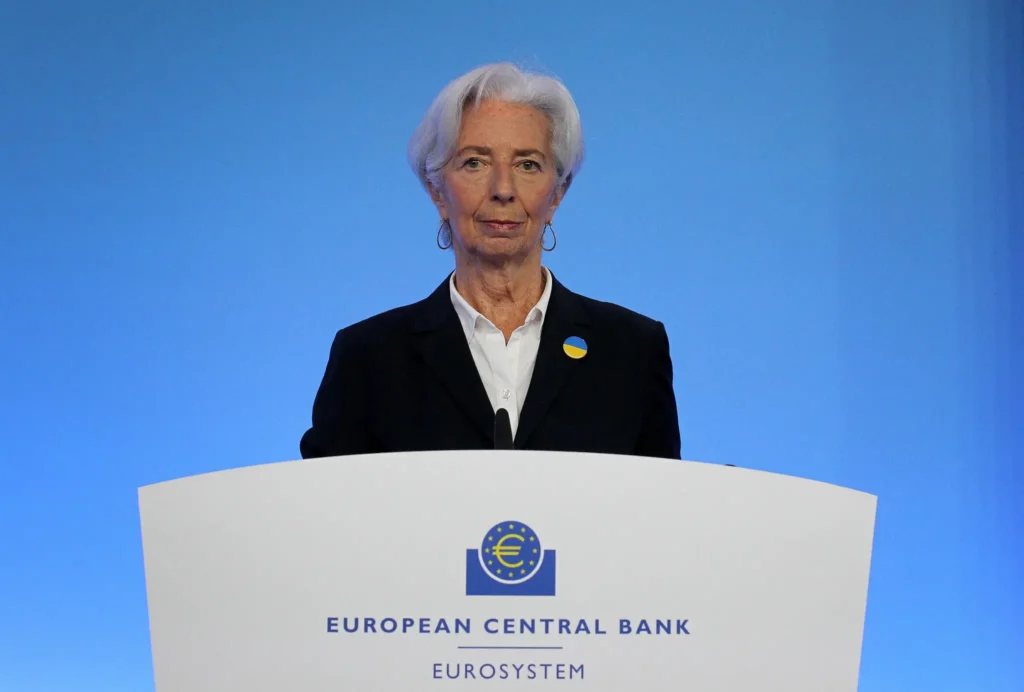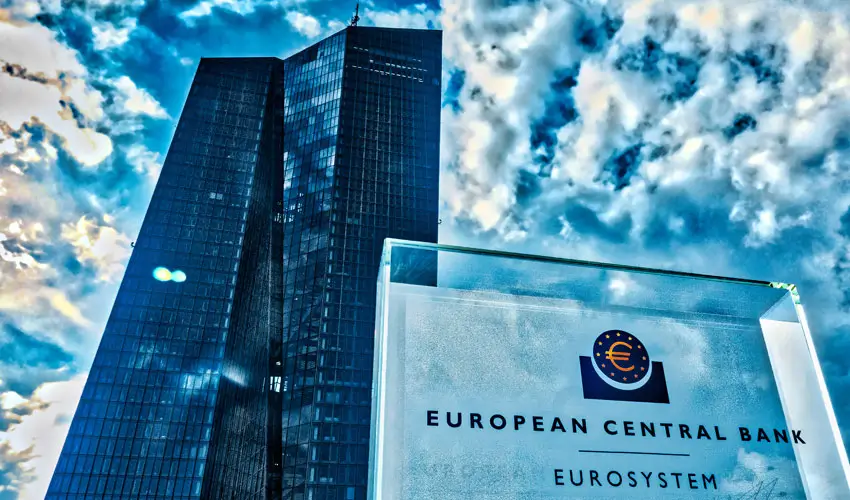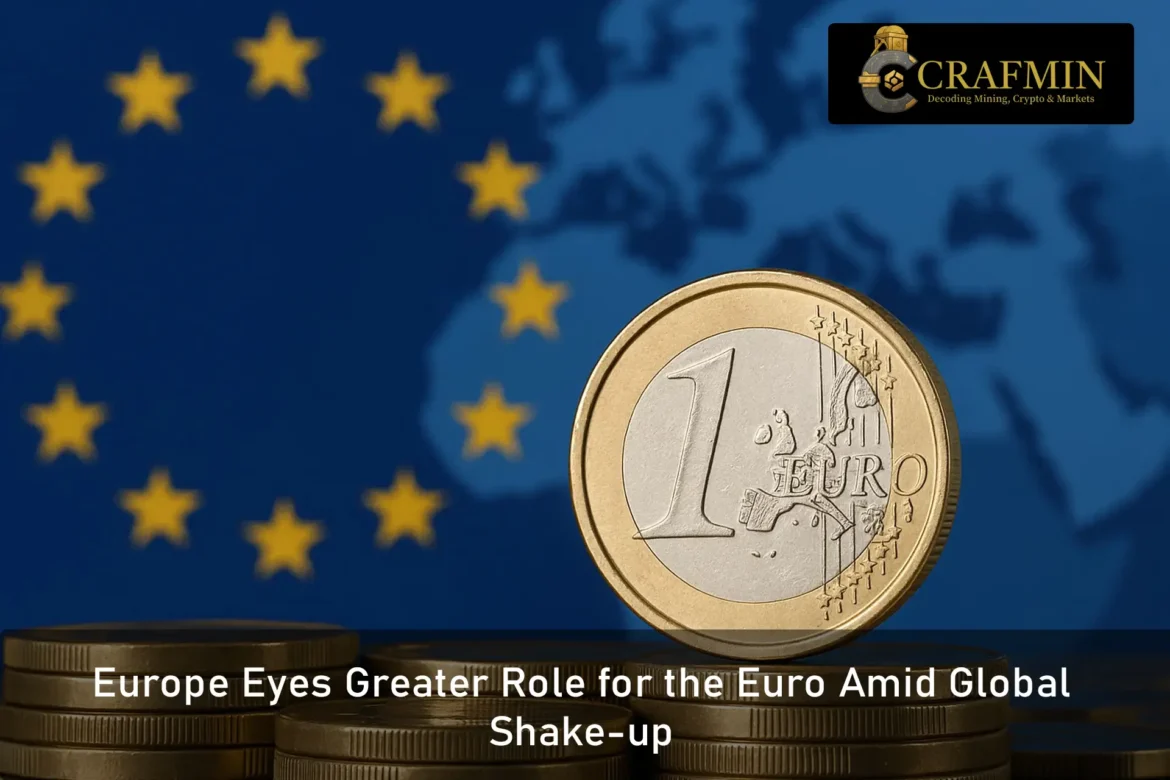As global financial structures face fresh challenges, European Central Bank (ECB) President Christine Lagarde has laid out a clear path for strengthening the euro’s international role. She argues that Europe must focus on three key areas: reinforcing its global position, improving its economic base, and ensuring its institutions remain dependable and resilient.
The world is moving away from its long-standing financial framework. With global cooperation fraying and protectionist attitudes gaining ground, even the dominant status of the US dollar is under question. These changes have sparked concerns for Europe, whose economy is tightly woven into global trade and depends heavily on international demand. Around 30 million jobs in the EU are linked to this global network.

Image 1: Christine Lagarde, President of the European Central Bank (Source: Reuters)
Still, these shifts also open new doors. As the rules of the game change, Europe has a chance to rewrite the playbook. By stepping up and steering its own course, the region could lift the euro’s position in the world.
At present, the euro is second only to the US dollar in global currency reserves, making up about one-fifth of the total. In contrast, the greenback accounts for roughly 58%. If Europe wants to tip the balance more in its favour, the work must start from within. Lagarde stresses that this won’t happen on its own; global trust has to be earned.
Trade Clout Gives Euro a Boost
Lagarde notes that the euro’s existing influence owes much to Europe’s trading strength. The EU is the top commercial partner for 72 nations, covering nearly 40% of worldwide economic activity. It also sees a large share of its cross-border deals conducted in euros. These figures place the bloc in a prime spot to expand the euro’s reach.
The ECB plays its part by offering liquidity lines to other central banks when needed. These tools help smooth out disruptions and protect the euro’s function as a stable currency beyond the EU’s borders. But while such support mechanisms are essential, they are only one piece of the puzzle.
The shift that is under way in the global order offers opportunities for the euro to gain global prominence, President Christine @Lagarde writes in #TheECBBlog. Increasing the euro’s global status would bring tangible benefits for the euro area.
— European Central Bank (@ecb) June 17, 2025
Lagarde believes Europe must use its current trade advantages to strengthen its currency’s standing. That means striking new trade deals, expanding market access, and taking advantage of its global network. Building trust is also crucial. Currency strength often ties closely to political alliances. Countries that stand by their commitments tend to attract more interest in their currency from reserve managers.
Economic Backbone Must Be Strengthened
Economic muscle is a must for any currency looking to play on the global stage. Lagarde underlines the importance of steady growth, deep financial markets, and a strong supply of reliable government bonds. These three factors go hand in hand to support the role of a reserve currency.
Europe’s performance in these areas remains mixed. Although the EU’s debt ratio is better than America’s—89% compared to 124%—its market is still too divided, and its growth too sluggish. One major issue is the lack of high-quality public debt, which investors rely on as a safe place to park their funds.
To tackle this, Lagarde backs deeper financial integration, reducing red tape, and pushing forward the long-standing plan to unify capital markets. She also supports collective efforts to invest in key sectors, such as green tech and defence. Joint EU borrowing to finance these priorities could boost the supply of safe assets and, in turn, the euro’s standing.

Image 2: (Source: Ledger Insights)
Stronger Institutions, Greater Confidence
A currency’s success doesn’t just rest on trade and economic fundamentals. Investors also look at the strength and reliability of the institutions behind it. Europe’s complex decision-making structure may seem puzzling from the outside, but Lagarde points out that it offers stability through its built-in checks and balances.
The independence of the ECB is one such asset. It ensures monetary policy decisions remain free from political interference, something that builds long-term confidence in the euro. Upholding the rule of law and protecting institutional credibility give the EU a unique edge in the global financial arena.
Lagarde has called for institutional reform within the EU to sharpen its ability to act quickly and speak with one voice. She argues that letting a single member state hold back collective decisions is no longer fit for purpose. Moving towards more qualified majority voting in key areas could make the EU more agile and assertive on the world stage.

